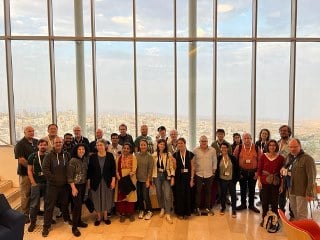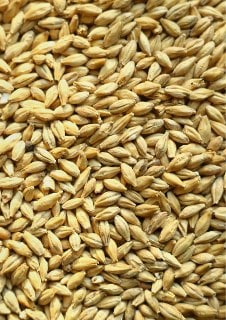NIFA-BARD Research Targets Lettuce Safety
Despite the implementation of extensive control measures to produce and deliver safe ready-to-eat leafy greens, serious disease outbreaks associated with the consumption of contaminated leaves continue to occur. Prevention of pre-harvest contamination on the farm has become one of the most important steps in reducing human health risks and improving food safety.




A joint NIFA-BARD research project led by Dr. Maeli Melotto from the Department of Plant Sciences at UC Davis, and Dr. Shlomo Sela Saldinger from the Department Postharvest and Food Sciences at ARO, aimed at understanding the mechanisms of Salmonella adaptation in lettuce. The teams worked on the characterization of the molecular and physiological mechanisms that enable Salmonella to colonize vegetable crops. This project advanced the knowledge of the genetic factors associated with bacterial colonization of lettuce leaves.
The investigators’ objectives in this research project were to examine the colonization efficiency of lettuce by outbreak-associated Salmonella serovars, to evaluate the natural variations in the colonization of various lettuce cultivars by Salmonella, and to elucidate the mechanism(s) of Salmonella persistence inside the leaf.
The study looked at the production of Reactive Oxygen Species (ROS) as a result of the inoculation of the leaf with Salmonella. The ROS is an important defense mechanism of plants and helps prevent infection of the unwanted bacteria in the plant. The researchers found that a continuous ROS was probably induced in response to the presence of either structural patterns of the two Type III Secretion Systems (TTSSs), or by effectors secreted by these systems. The data revealed multiple immune responses in the guard cells aimed at limiting Salmonella penetration, which was achieved by stomatal closure and by the killing of nearby bacteria by ROS. The Israeli investigator, Dr. Sela, worked on testing single mutants for TTSS-associated genes. The data he gathered was used for reporting the results.
We asked the investigators: Once growers have a better understanding of how Salmonella colonizes lettuce, how can the pre-harvest protocols be changed to promote food safety? Prof Melotto: “One option is to use lettuce cultivars that are not easily colonized by Salmonella. We have shown that the plant immune response against this bacterium is associated with lower bacterial titer in the leaf environment.”
Are the findings of this study relevant to other leafy greens? Prof Melotto:” Our findings could be extended to other leafy greens if these crops can also recognize the pathogen and employ immune response against them. This assumption will have to be validated experimentally.”
Can the methods of this research team be used to study other pathogens, for example, listeria? Dr. Sela Saldinger:” Yes. Similar approaches and methods are adequate for studying the interactions between other human pathogens and other leafy vegetables.”









